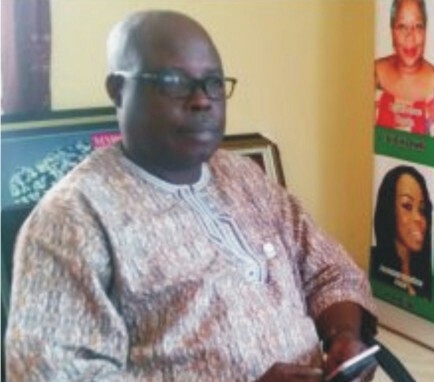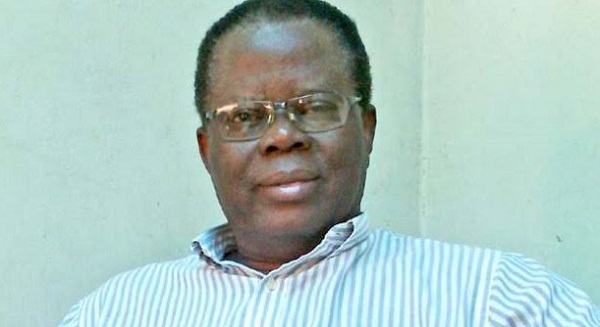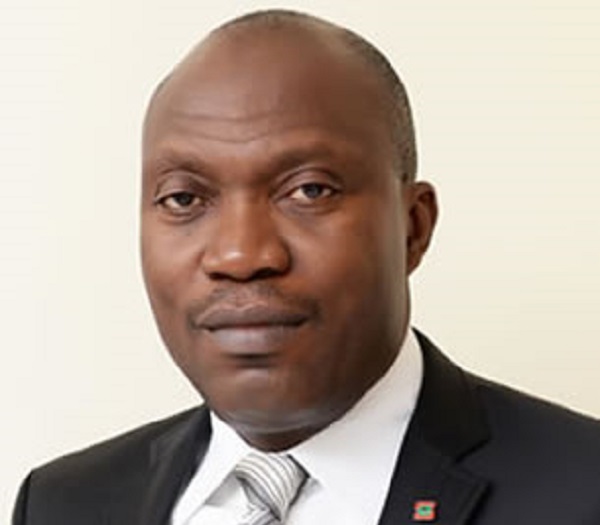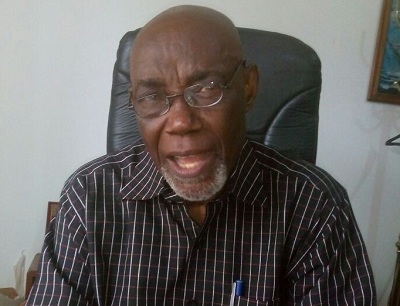CRFFN Act Only Gives Minister Of Transport Advisory Role – Shittu

Prince Olayiwola Shittu is a former President of the Association of Nigeria Licensed Customs Agents (ANLCA). In this exclusive interview with MMS Plus, Shittu bares his mind on a myriad of port sector issues including the Council for the Regulation of Freight Forwarding in Nigeria (CRFFN), Customs Modernization Project and the prolonged closure of Nigerian land borders.
Excerpts:
CRFFN is faced with several challenges including misinterpretation of tenure of the governing board members and proposed tenure elongation. As a pioneer governing board member, what’s your take on these issues?
I resigned from CRFFN board because of similar issues you are talking about today. At that time, people wondered why I thought differently with regards the way CRFFN should be operated. I like things been done rightly. CRFFN is a place for government opportunists; people go there with the motive to get the best they can for themselves and those who want to do the actual work are given bad names. This got to a level that I had to resign and I have never looked back.
The problems started when the Council was hijacked and turned into a government parastatal. We told the former Registrar, Mike Jukwe to go to the Council for the Regulation of Engineering in Nigeria (COREN) to find out how it was administered. The essence was for him to replicate a similar approach with CRFFN.
While I haven’t been snooping into CRFFN’s affairs, I have become aware of the moves for tenure elongation by reading the newspapers. I found it shocking as some people claimed that the COVID-19 pandemic is the reason they couldn’t work and need tenure extension. If that is their claim, every elected government official in Nigeria should also deserve tenure elongation. In my opinion, I would suggest that since the Council was set up for freight forwarders the current leadership should allow others take a shot after their tenure elapses. If someone has spent two years, he or she should step aside to allow others with new ideas come in. This process should continue until some leaders get it right. Even if there is a need to extend it to four years, at this stage let us continue with two years. This way, in a short while several people would have gone there and come out to explain the challenges.
Politics has been introduced in CRFFN and anywhere you have politics you must have distortions. Both the elected and appointed governing board members of CRFFN got there by political considerations.
When I was ANLCA President, I championed the cause of my association and its contribution to CRFFN. We had committees to brainstorm and make contributions to CRFFN. As soon as I stepped aside, the association didn’t have a uniform stand on CRFFN issues anymore. Most times, people call me to speak on CRFFN issues and I direct them to the current ANLCA leadership.
I want to spend time to care for myself because I have been running around for 40 years serving others.
When does someone’s tenure start in the CRFFN Governing Council; is it when the election took place or when the swearing-in ceremony is conducted?
Going by the CRFFN Act, one’s tenure should start from the election. This is simply what the Act said. Nevertheless, I’m amazed that people want to remain at CRFFN because they always lament that there is nothing happening there.
After two years as ANLCA President, I wanted to leave because I was worn out. I spent my money to do things, yet people would say that I hadn’t done enough. I was accused of traveling all around the world and I’m sure my incumbent would be facing similar queries. People intervened and stressed that I had already done two years, encouraging me to go ahead with my contributions to the end.
There have been talks that governing board members leave with CRFFN branded hilux. Did you return CRFFN vehicle after serving as a board member?
Several people were offended when I resigned and if I had their vehicle they would have taken it at that time. I was the Chairman of the Committee on Publicity and they wanted to give me a pick-up van. I told them that such vehicle wouldn’t serve the purpose of publicity and I didn’t need it for personal use because I had my vehicle. A bus was a better alternative to convey journalists and other executives for tours.
When I became President of ANLCA, I wanted to buy a vehicle that befitted the office because I didn’t inherit anything as President. It was a friend, retired Customs DCG Julius Nwagwu, who advised me to buy a bus. He explained that it was the modern administrative style to have executives discussing in the bus while going for meetings. I went to Gbagada to buy the Hiace bus that I used throughout my tenure to convey colleagues. Most times we traveled with it but it was my property. CRFFN allocated a number plate to me for the bus, but when I resigned I wrote them and returned the plate number. However, they told me that issuing the plate number to me meant that it was personalized to me and that was all. They even gave me a letter authorizing me to use the plate number; so, I don’t have any property of CRFFN. There are people who were allocated vehicles and I would have returned such vehicle if that was the scenario.
The Federal Executive Council (FEC) recently announced the $3.1billion Customs Modernization Project which has been awarded to concessionaires. What’s your view on this?
I’m not comfortable when there are government policies shrouded in secrecy. When I was President of ANLCA I spent so much resources and time shuttling Lagos and Abuja to prevent such shoddy deals. I’m surprised that the industry hasn’t kicked against this, especially from freight forwarding groups. Only the National Association of Government Approved Freight Forwarders (NAGAFF) has taken a position against it, but I’m sure that the ANLCA President must have made some moves. This decision by the government is one that affects freight forwarders, so why are we in the dark? It could be because we have the benefit of history and the government doesn’t want that history to come up.
At one time, there was Crown Agent; but freight forwarders came together and fought against it. Today, every group is only concerned about personal interest and not the collective interest of practitioners. The contract of 20 years also raised a red flag because that time is too long. It makes me recall the initial move to concession Nigerian seaports and how we urged the government to model it after the process in South Africa or Ghana. We shouldn’t leave these crucial functions squarely in the hands of private operators. The unfortunate thing is that the government seems to have concluded this arrangement and would proceed with it despite public outcry.
There was a time we were doing pre-shipment inspections and Customs still carried out their functions. We considered this to be duplication of functions. Remember PIDA, which was a similar venture but you can’t take away the role of Customs. Customs play a vital role everywhere in the world. They are responsible for trade facilitation and security. Are we doing away with Customs or we are going to have double handling? If the modernization would be the system in America, there would be no need for human interface; it could work perfectly. The importer sends you the Form M and the agent concludes before sending to the bank. The customs broker is expected to calculate government duty which is the function that Nigeria is planning to outsource. In America, it is the customs broker’s bank that pays that duty and the importer can’t influence it. If the customs broker is involved in any connivance or shortchanges the government, the penalty is 7 years imprisonment without option of fine. This responsibility on the freight agent ensures he does the job without compromise.
It is important to note that in America, they license individuals while licenses are given to companies in Nigeria. If such is done in Nigeria, people would collect government fund and run away with it. Once you cross the Nigerian border you can be safe with stolen funds but America has the resource to hunt you beyond the continent. Giving license to corporate bodies means that even if the promoter dies, the company could still be held liable and this secures government revenue.
The Customs Modernization project would outsource revenue collection to the concessionaires. Is Nigeria ready for this? Would we have a system where people collect monies on behalf of the country and abscond with it? We expected that there would have been several meetings and sufficient consultations before this approval. They have gone ahead with it without an Enabling Act. We are just relying on executive orders; but what would be the role of Customs and Customs brokers in this arrangement? With the projected level of automation, would there be downsizing at the Customs because the number of officers at the ports are too many. This is why there is duplication of functions as several units just do the same function under various titles.
I also believe that the sum that concessionaires have proposed to realize with Customs modernization project can also be realized by NCS, if the Service is encouraged to go into 100 percent automation and the officers are adequately trained for the new process.
Once things are completely online, NCS can query and the freight agent responds online which eliminates opportunities for extortion via human interface. If this is the goal, the government would need the contribution of stakeholders to make it work. If Customs decide to tackle the problem of smuggling and under declaration headlong; what about the agents? Would every importer be responsible for evacuating cargoes from the ports? We have tried this during the military regime of General Sani Abacha, but it didn’t work.
Manufacturers Association of Nigeria (MAN) was one of the first groups that kicked against it before the government rescinded the decision.
In summary, as long as the government hasn’t come forward transparently to explain how this Customs modernization project would operate, the modalities and challenges and how stakeholders will be involved; we would remain skeptical about it. Recall that the Comptroller-General of Customs, Col. Hammed Ali (Rtd) recently announced that the government has approved funds for acquisition of scanners. What would happen to these scanners when the Customs Modernization project kicks-off?
We have a situation where cargoes are being transshipped and brought to Nigeria including the items that are contraband in the country. We have to note that the merchants involved in drugs and arms can go to any length to get their goods to their clients, hence, the significant role of Customs and additional reason to scrutinize this 20-years Customs Modernization project.
You mentioned the approval of funds to acquire scanners but Apapa port was left out in the list of ports to get scanners. Are you concerned about this development?
This Customs Modernization Project doesn’t create room for scanners because the concessionaires say they would handle everything. Initially, some of us had thought that there might be a need to thinker with the concession given to terminal operators. In Cape Town, South Africa, the terminal operators are responsible for scanning. As the vessels arrive, all the cargoes are scanned and the data is stored on a platform accessible by Customs. Customs and other regulatory agencies aren’t found at the ports because they can see the results of the scanning from their platform online. Those agencies who have any complaints would flag the consignment without being there manually. As President of ANLCA, these trips were part of my efforts to study other ports to see how other ports are operated to be able to proffer good advice to the government. In Nigeria, however, the government only takes advice that is in line with its interest.
How would you rate the performance of the current governing board at CRFFN?
I would like topoint out that CRFFN Act says the intervention of Minister should be sought when the Council can’t decide on certain issues. The Minister’s role is to advise the Council and they could opt not to take the advice. The Act gave that independence to the Council on behalf of freight forwarders. Today, we have a situation where the Minister is responsible for every decision at the Council. The Minister has taken over everything which is contrary to the law. It is strange that the Council keeps going to the Minister to direct them.
Nigeria’s land border closure has lasted for more than one year, exceeding expectations that it was just an intervention for few weeks. While there are gains from the closure, it has also grossly impeded cross border trade and related businesses. How would you rate this development?
I see this development in a very different way and I’m handicapped by the fact that ANLCA members, especially those at the border areas have been affected. I sympathize with those whose livelihood depends on the borders. However, I know that all licensed Customs agents can work anywhere and these practitioners can also go the seaports to continue their work.
When you look at the global activities, it isn’t surprising to have Nigeria’s border shut for so long when the President of United State of America (USA), Donald Trump is saying America first. In the Economic Community of West African States (ECOWAS), I don’t see why it shouldn’t be Nigeria first. Nigeria needs to think of things that are more favourable to its citizens, even though, we are the big brother in Africa. Nigeria is like an elephant that is being eaten up by rodents. All our neighbours are very hostile and unfriendly and they are living on Nigeria. We have complained to them that our nation isn’t safe and encouraged them to control the passage of some dangerous goods.
The truth is that these goods aren’t good for the border nations also, but they can consume it if they want. The most important thing is that they check the movement of such goods and prevent it from coming into Nigeria via their countries. It is unfortunate that the Customs and other agencies in the neighbouring countries not only allow these goods to come into Nigeria, but also supports the system.
The border closure has reduced the level of smuggling into the country and arms and ammunition no longer come in through the land borders. It also showed that Nigeria can live without the neighbouring nations and cross border trade.
However, I learnt that following the recent meeting that took place in Niger, the federal government is considering reopening the land borders. There were conditions given for the reopening because the government didn’t say the borders would be permanently closed. ECOWAS treaty gave room for ETLS so that goods produced in the sub-region could enter each country free but we saw how some countries received goods from developed countries, repackaged them and brought them into Nigeria.







